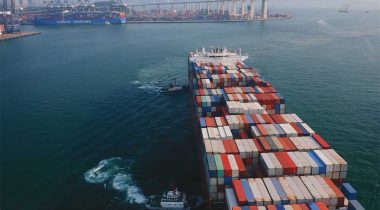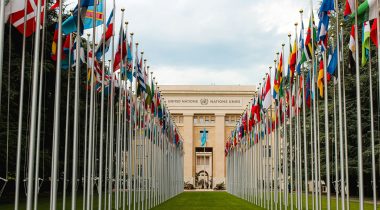
Liz Nelson ■ Raising the voices of communities from Asia

Cancel Public Debt, Build Just Tax Systems and End Financial Support for Fossil Fuels in Response to Multiple Crises.
In solidarity with our fellow activists and advocates in the Asian People’s Movement on Debt and Development (APMDD) we post here their press release regarding the open letter they have delivered to the UN General Assembly.
October 1, 2020
As world leaders wind up the historic 75th session of the United Nations General Assembly today, people’s movements across Asia and global civil society organizations called on governments to tackle debt, tax avoidance and evasion, and public financing of fossil fuels in response to the present multiple crises.
In an open letter to the UN General Assembly, the Asian People’s Movement on Debt and Development (APMDD) and 51 member organizations raised “three urgent calls” to help peoples and communities in Asia to survive the multiple challenges of coronavirus, economic recession, and accelerating climate change:
First, unconditional cancellation of public debt for all countries in need starting immediately with a cancelation of a minimum of four years of debt service.
Second, an end to public financing of fossil fuels and adequate, additional, public and non-debt creating Climate Finance.
Third, tax and fiscal justice to correct economic and gender inequalities and generate sufficient public revenue for social services spending.
According to Lidy Nacpil, coordinator of APMDD, the open letter seeks to raise the voices of communities from Asia, a region that is home to more than two-thirds of humanity that is now facing unprecedented suffering brought about by the multiple crises. “We want to convey these concerns with the expectation that the United Nations will hear and act on these concerns decisively,” said Nacpil.
Immediate cancellation of public debt
The open letter calls for decisive steps to comprehensively address unsustainable and illegitimate debt nationally and internationally, including a UN mechanism that is transparent, fair and not dominated by lenders, as well as international fiscal measures that are not in the form of loans, noting that the “debt relief” being offered is dwarfed by the volume of COVID19 loans being extended to countries in need.
“With the volume of COVID19 loans being extended to countries, we are concerned that it is creating greater public debt. The response to this pandemic should be reducing the debt burden. Precisely it is the decades of debt payments and debt-related austerity measures that have rendered the public health care systems of developing countries too weak to deal with the pandemic,” said Nacpil.
End public financing of fossil fuels
The open letter likewise calls for “just transition to clean, renewable and democratic energy systems that give primacy to the needs of people and communities,” noting that people of Asia are under various conditions of vulnerability and face a wide range of climate hazards.
“We echo the statement of UN Secretary-General António Guterres in the beginning of this pandemic that we need to turn the recovery into a real opportunity to devise a blueprint for a healthier planet to ensure a more resilient future. An immediate step that must be taken is to halt the use of public funds to support fossil fuel build out,” said Nacpil.
The open letter states: “The delivery of adequate, additional, public and non-debt creating Climate Finance for mitigation, adaptation and loss and damage is as urgent as public financing of measures to fight COVID19, economic assistance for those whose jobs, livelihoods and well being are most affected, and programs for building more just, equitable, resilient and sustainable economies that are the foundations towards solving the multiple crises.”
Tax and fiscal justice, domestic resource mobilization
Lastly, the open letter states that the multiple crises also underscore the urgency of making taxes more progressive in order to generate sufficient public revenue for social services spending, as well as end gender bias, the preferential treatment for multinational corporations and elites, tax avoidance and evasion, and illicit financial flows from the South to the North.
It states further: “We demand more decisive action from governments at a national level and as an international community most especially at this time when we can ill-afford the continuation of undermining public revenues. Furthermore, tax justice and addressing illicit financial flows have positive impacts on governments’ propensity for relying on heavy public borrowing. At the same time, we emphasize that tax justice must be accompanied by government budgets and spending programs that give primacy to the immediate needs of people and communities in the face of the multiple crises, providing essential services, fulfilling human rights and social justice, and addressing inequality.
“Developing countries are in need of more tax revenues now. There must be a halt to the unmitigated plunder of natural resources and the massive net outflow of wealth from the South to the North. We say enough to the domination of our economies by multinational corporations. We say no more to unfair trade relations, the exploitation of our workers as cheap labor domestically and overseas, and the payment of interests on unsustainable and illegitimate debt,” said Nacpil.
Sent to the United Nations General Assembly and Member States 1 October, 2020. Please find here the full text of the open letter on the APMDD website.
Contact: Lani C. VillanuevaMobile No. +63 0905 247 2970 [email protected]
Photo by Miguel-a-Amutio (Unsplash)
Related articles

The elephant in the room of business & human rights
The elephant in the room of business & human rights
UN submission: Tax justice and the financing of children’s right to education
14 July 2025

How the UN Model Tax Treaty shapes the UN Tax Convention behind the scenes
The 2025 update of the UN Model Tax Convention
9 July 2025
One-page policy briefs: ABC policy reforms and human rights in the UN tax convention

Bad Medicine: A Clear Prescription = tax transparency
Tax justice pays dividends – fair corporate taxation grows jobs, shrinks inequality

Reclaiming tax sovereignty to transform global climate finance
Reclaiming tax sovereignty to transform global climate finance
16 June 2025

